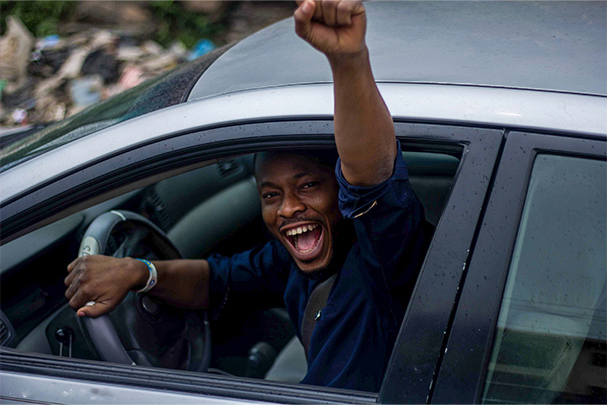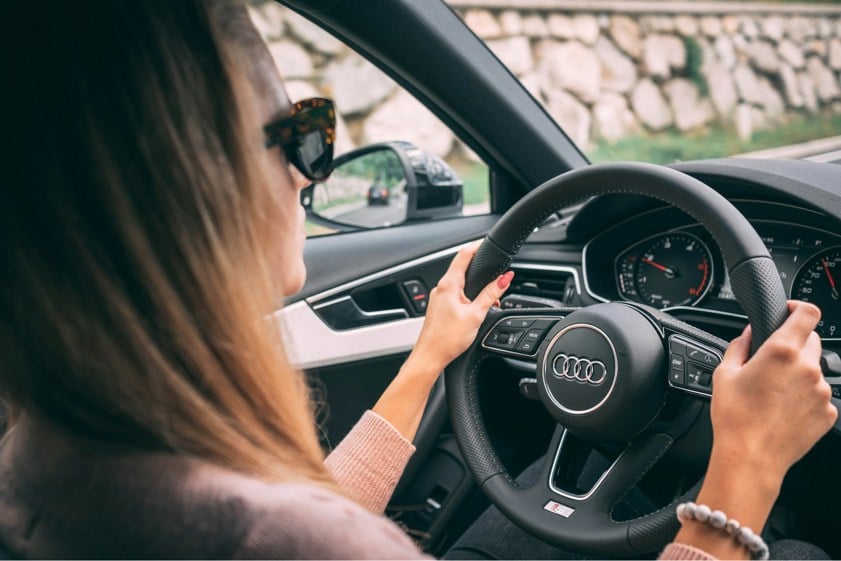
If you’re a young driver looking at getting a car, there’s a decision to be made: do you buy a car or lease one?
It’s okay if you’re stressed about it. Getting a car is a big financial commitment and you want to ensure you make the right decision.
To help you out, we’ll compare buying and leasing a car for young drivers, exploring each option, the benefits and drawbacks, and practical insights to help.
We discuss:
- Guidance for young drivers who are unsure whether to buy or lease a car
- What is car leasing
- What’s the difference between buying and leasing a car?
- Can young drivers lease a car?
- What does a young driver need to consider?
- Pros and cons of car leasing for young drivers
- Pros and cons of buying a car for young drivers
- What options are available for a young driver if I lease?
- Maintenance differences between leasing and buying
- Long-term options
Car leasing is a financial arrangement that allows individuals to use a vehicle for a specified period, usually two to four years, in exchange for making regular monthly payments to the leasing company.
However, at the end of the lease term, the individual does not own the car. Instead, they have the option to return the vehicle or purchase it at a predetermined price.
Key terms
- Down payment - The initial amount you pay at the start of the lease to secure it. This is typically a percentage of the car's value and helps reduce the monthly lease payments.
- Monthly payments - The regular payments made throughout the lease term, covering the depreciation of the vehicle, interest, taxes, and other fees.
- Lease term - The predetermined duration of the lease, usually stated in months. At the end of this term, you have options to either return the car, purchase it at a specified price (residual value), or sometimes extend the lease.
The most important difference between the two is in terms of ownership. When you buy a car, you own it outright. However, when leasing, you don’t own it. The finance company owns the lease vehicle, and you rent the car from them for a fixed period of time.
When you lease a car, it includes various add-ons, including road tax, warranty (if the car is new), and optional maintenance. It will also be delivered free of charge to your front door (exclusions apply).
Yes, anyone over the age of 18 years old can lease a car. All that’s required to get a car on finance is that you have a full UK driving licence and are able to afford the monthly rentals.
You cannot lease a car under the age of 18 as a lease contract is a form of credit, and a person under 18 cannot be legally held to a contract.
For more information on this, check out our guide, Can You Lease a Car If You Are Under 25?
Considerations | Leasing | Buying |
|---|---|---|
Finances | Leasing a car spreads the cost over the contract period. You pay a low initial rental, followed by fixed monthly payments for the duration of the contract. You can also add in optional maintenance for a fixed monthly fee. | When you buy a car, you pay a down payment, registration fees, road tax, and any other associated costs. If you buy it on finance, you’ll pay monthly loan payments that will vary depending on the purchase price, interest rate, and loan term. Maintenance is the owner's responsibility, and any associated costs, while you also need to consider the car's depreciation. |
Mileage | A car lease agreement comes with mileage limits, which specify the maximum number of miles you can drive annually. If you exceed your mileage limit, you'll be subject to excess mileage charges, which could prove costly. For more information, check out our Excess Mileage Charges Guide. | When you buy a car, there are no mileage restrictions, and you have the freedom to drive the vehicle as much as you want. |
Flexibility | Leasing a car gives you access to newer models every couple of years, meaning you can upgrade to a new model at the end of your lease term without the hassle of selling or trading your car. You get flexibility with how long your contract is and can choose between a two, three, or four-year deal. | When you buy a car, you have the freedom to customise it according to your preferences and personal style. From personal speaker systems to custom paint jobs, buying a car allows you to impress your friends without having to abide by your finance provider, like when leasing. Another plus to owning a car is that you don't have to answer to anyone. The car is simply yours, so you can do whatever you please with it. |
Pros:
- Lower initial costs compared to buying a car - Car leasing typically requires a lower initial payment compared to purchasing a car outright. The down payment (or initial deposit) for a leased car is often significantly lower than the down payment required for buying a new car. This makes leasing more financially feasible for young drivers who may not have substantial savings or established credit to afford a large down payment.
- Access to newer vehicles - Leasing allows young drivers to access newer models and more technologically advanced vehicles without the burden of ownership. You’ll get the latest safety features, fuel efficiency improvements, and in-car technology.
- Avoid long-term commitment - Young adults often experience significant life changes in their early years, such as career shifts, relocations, or changes in family circumstances. Leasing provides flexibility and avoids the long-term commitment of buying a car.
Cons:
- Financial readiness - Young drivers need to evaluate their financial situation and ensure they can comfortably afford the monthly lease payments. This involves assessing income, regular expenses, and other financial commitments. Leasing is a fixed monthly payment and can fit into budgeting, preventing financial strain.
- Understanding mileage limits - Car leases come with mileage limits, which are measured annually. It’s crucial for young drivers to estimate their driving habits accurately and choose a mileage limit that suits them. If not, excess mileage will result in additional charges at the end of the lease.
- Insurance requirements - Leasing companies require specific insurance for the vehicle. Young drivers must understand the insurance requirements and obtain the necessary coverage.

Pros:
- Ownership - You own the car and can do whatever you like with it, such as modifications and selling it later on.
- You can sell it whenever - If you don’t like the car, you can sell it and switch to a different model whenever you can.
- Mileage is unlimited - You won’t be charged extra for excess mileage.
Cons:
- Depreciation - A new car's value depreciates massively, meaning you’re unlikely to make back the amount you paid for it when selling.
- Costs more upfront - Paying for a new car costs a lot of money, and even if you’re spreading the cost out over time, you can often end up spending more than you would with leasing.
- Unexpected costs - When you own the car, you’ll have to pay for road tax and breakdown cover separately, which will get more expensive as your car gets older. Also, the older your car gets, the more likely it will develop problems, which can lead to expensive repairs that you’ll have to pay for.
- Selling isn’t always simple - You might think that selling a car is relatively easy, well think again. There are companies that will help, however, they’ll also take a large chunk of the sale price.
There are two options available: Personal Contract Hire (PCH) and Personal Contract Purchase (PCP). But how does a lease differ from a PCP?
The main difference between the two is that leasing is a long-term rental where you return the vehicle at the end of the contract. Whereas, with a PCP agreement you have the option to buy the car.
Leasing:
- For a fixed monthly cost, you can add a maintenance contract to your lease agreement that includes servicing, replacement tyres, MOT, and other repair costs. All the work will be carried out by qualified technicians.
- Young drivers are responsible for routine maintenance such as oil changes, brake inspections, and tyre rotations.
- You should also keep detailed records during your lease contract.
Buying:
- When you buy a car, you have to cover all maintenance-related things yourself (unless the manufacturer's warranty covers it).
- If you get a new car, whether that’s buying or leasing, it will come with a manufacturer's factory warranty during the lease term. This typically covers repairs for a specific period or mileage, whatever comes first.
Leasing:
- Purchasing the car (buyout) - At the end of the lease term, you typically have the option to buy the car. The price is predetermined in your lease agreement, known as the "residual value" or "purchase price." This allows you to own the car outright.
- Extending the lease - Some leasing companies may offer the possibility of extending the lease for a certain period. This could be on a month-to-month basis or for a specific number of months. Make sure to clarify the terms and costs associated with this extension.
- Starting a new lease - If you've enjoyed your current leased car, you might choose to return it and start a new lease on a different vehicle. Leasing companies often have various options available for choosing a new car.
- Returning the car - If you decide not to buy or extend the lease, you can simply return the car. However, be prepared for potential fees and charges.
Buying:
- What you do with the car is completely up to you. If you want to keep it, you can. If you want to sell it, go ahead.
For more information about leasing, why not check out our comprehensive Car Leasing guides?
Nationwide Vehicle Contracts is one of the UK’s largest car leasing brokers, offering a range of services. Check out our Used Car leasing service or our Fast Lease service, which offers delivery within four to six weeks (exclusions apply).

